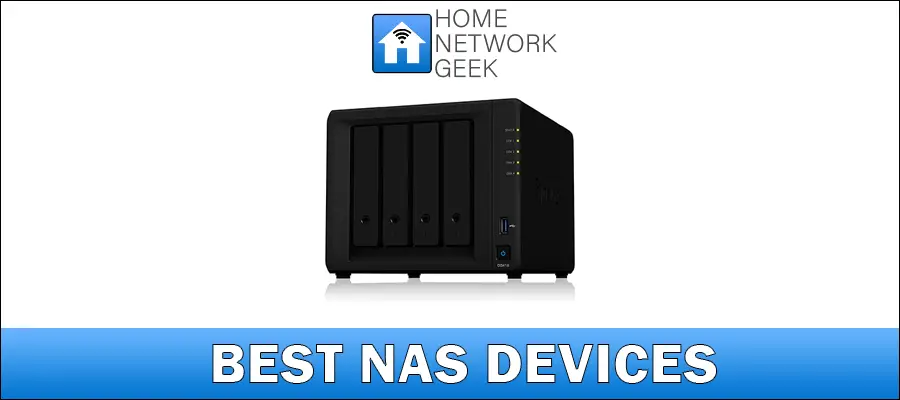
Affiliate Disclosure: As an Amazon Associate I earn from qualifying purchases.
Network Attached Storage devices are a great solution if you are looking for a centralized place on your network to store all of your data.
There are many different NAS devices that support several RAID configurations which allows you to set up redundancy as well as support for different amounts of data.
I’ve done extensive research into several different NAS devices and found these three are great options depending on how much data you have to store and how much of a budget you are on.
Top 3 Recommended NAS Devices
- Synology DiskStation DS418 – With support for 48TB of data and plenty of RAID configurations to choose from, this is a great all-rounder that I would recommend to most people
- Synology 12 Bay NAS Diskstation DS2419+ – This is the ultimate NAS with 12 hard drives bays and support for a massive 33TB of data. The performance on the network is also fantastic
- TerraMaster F2-210 – This is your budget option which is more limited in terms of redundancy options, but it can still support 32TB and you can even use SSDs with it
Why I Picked the Synology DiskStation DS418
There are a few reasons for me picking the Synology DiskStation DS418 as the recommended network attached storage device
- 4 hard drive bays to support several different RAID configurations
- Support for up to 48TB of data
- 64-bit quad-core processor to improve data transfer speeds
- Surveillance Station tools provide intelligent monitor and video management tools
- Accessible from anywhere in the world
- Excellent for streaming 4K video files
What to Consider When Buying Network Attached Storage
- Storage – Consider how much storage you think you will need not just now, but also in the future. Make sure the NAS you choose is future-proof in terms of the total storage it offers
- Backups and redundancy – Redundancy allow you to mirror your data stored on one hard drive to another, so should one fail, the data is still safe on the mirrored drive. I feel this is critical to any data storage solution
- Hard drive bays – Having multiple hard drive bays available will not only generally increase the amount of storage available to you, but also the different RAID configurations for setting up redundancy
- Included hard drives – Most NAS devices will be diskless so you’ll have to purchase the hard drives themselves separately, but some will have them included. Those with included disks may be more convenient but you could end spending considerably more
- Connections – USB ports, Gigabit Ethernet ports, HDMI ports and physical buttons for quickly copying data are all available. Think about which connections you may want and check the NAS to see if these are included
- Remote access – Most NAS devices will feature remote access allowing you to access them from wherever you are in the world, but don’t assume this and definitely check before making a purchase if this is a feature you want
